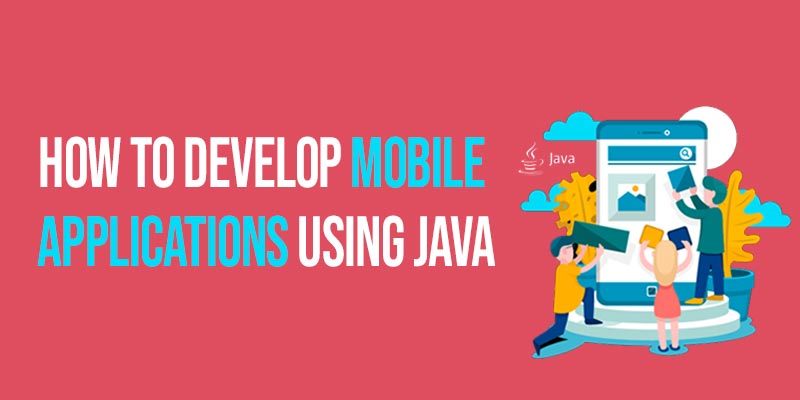In 1995, Sun Microsystems released Java, one of the most potent general-purpose programming languages (now owned by Oracle). Java is an example of an object-oriented language.
It does not qualify as completely object-oriented because it supports basic data types (like int, char, etc.). Java and C/C++ have similar syntaxes. However, Java must provide primitives for low-level programming, such as pointers. In addition, classes and objects are always used in writing Java programming.
Java is a key component of the Android operating system. All the SDKs needed to create Android applications which utilize Java standard libraries. If you have experience with older programming languages like C or C++, Java is simple to learn.
As a result, this back-and-forth includes a thorough tutorial for learning Java, focusing on Android app development. Moreover, we will discuss why developing Java-based mobile applications is increasingly popular.
In this blog, we shall discuss android development with java, java development tools and benefits of app development with java.
If you want to become a Java developer, you can join a Java Course In Chennai and learn from the basic to advanced concepts of Java like Data Types, Operators, Variables, Methods, Objects and Constructors.
Importance of Android development with Java
Since Java is a flexible and effective programming language that allows developers to produce reliable, high-performing applications, Java mobile app development has long been on the rise. Even though it has been around for over twenty years, many developers still prefer Java when making mobile applications.
Bringing in a remote Java development team can help your mobile development process. Although Java can run on over 6 billion devices, its emphasis on Android and iOS apps makes it an excellent choice for mobile development. Let's look at Java's merits as a mobile app development platform.
Why use Java for mobile development?
Java is a strong and flexible programming language that can be used to create a wide range of applications. Since it is platform-independent, it may be used with any operating system, including iOS and Android. A crucial point to remember about iOS is that iPhones do not run the Java Virtual Machine. You can overcome these restrictions by compiling the Java input to the Objective-C code.
Why would someone choose to use Java? Java has a lot of advantages as a mobile app development language, which makes it a good choice. The key benefits of using Java for mobile app development include native mobile development tools, cross-platform flexibility, frequent upgrades, and open source. Let's examine the advantages of creating Java mobile applications below.
To have an comprehensive understanding of java programming language, you can join Java Course In Chennai, which will help you acquire the core concepts of Exception Handling
Framework, Iterator, Core Interfaces, Core Classes and others.
Benefits of Java Mobile Application Development
Let's examine Java's main advantages before moving on to why companies should continue using it.
Security and Robustness
The way that Java handles security is one of its key advantages as a platform for creating mobile applications. Java contains several crucial security measures that ensure its reliability as a programming language. You can create a mission-critical application for your company with the help of a top-notch tool if you combine this benefit with cross-compatibility.
Popularity among the Masses
Java's popularity among programmers is another significant benefit of adopting it to create mobile applications. It indicates that you have the option to offshore the entire Java development team and have access to a wide range of expertise. Additionally, many Android apps run on Java, making it a popular platform for creating, distributing, and advertising your mobile app.
Built-in Mobile Development Features
Java is the best programming language to create a top-notch mobile application. Many of its capabilities, such as Just-In-Time compilation and trash collection, impact how well apps function.
This programming language is the complete tool for mobile development because it efficiently uses resources.
Relatively Low Investment
As discussed earlier, Java is one of the most widely used programming languages. Moreover, did you know that billions of mobile devices have a vast user base? These two assertions demonstrate the existence of teams of developers who provide high-calibre Java services at reasonable costs. Better employment choices, lower recruitment expenses, and better application outcomes ultimately benefit your company.
Community Support
As we briefly indicated, there is a significant Java development community. When creating a mobile application for your company, developers can work together, utilize public libraries, and benefit from local assistance. Your developers would value Java's community support when they begin working on the project as a result of all these benefits.
In the past, Java mobile web application development was thought to be the upcoming big thing. Currently, tens of thousands of developers release and manage projects that operate on billions of devices due to Java. Java is the most important choice for building your mobile application from the ground up due to the above mentioned advantages.
If you are interested in learning a demanding Java course, you can do Java Online Training, which has meticulously designed the course for the learner who intended to learn from their homes.
How to develop Mobile Applications using Java?
The following query is, therefore, "How can I design mobile applications in Java?" There is no one-size-fits-all solution for good coding practices for mobile development. However, the following Java-specific advice can be helpful to your development team:
- Maintain lean and mean coding: Your code must be as effective as possible because mobile devices only have limited resources. It entails refraining from creating unused objects, using object pools when necessary, and other things.
- Use lightweight frameworks: Mobile devices can only handle the weight of a few full-featured Java frameworks. Remain with lightweight substitutes created especially for mobile development.
- Optimize your code for performance: This tip implies that crucial details like startup time, memory space, and battery capacity should be carefully considered.
- Be mindful of platform differences: Not all mobile devices use the same version of Java or have the same capabilities, and you need to be aware of these differences and code accordingly.
- Test: The testing process is a must for all software development projects. Still, it is especially crucial for mobile apps because company-level solutions for problems with them can be time- and money-consuming.
If you want to head your careh2er in the mobile development field, you can join Mobile App Development Courses in Chennai, which will help you understand the frameworks like React Native, Xamarin, NativeScript, Node, Flutter, etc.
Given how easy it is to create mobile applications using Java, your organization should remember the guidance mentioned above and pass it along to the development team.
Choosing Java as a whole is one of the best operational decisions your organization should make because the advice we've offered is one of the few that optimizes the development process.
Now we shall discuss essential steps that include android development with java and app development with java.
Step-by-Step Guide to Learn Java for Android App Development
Basics of Java
- How to start learning Java: Before starting a java project, you should comprehensively understand the core Java programming language.
- Setting up the environment: You must configure the integrated development environment (IDE) for writing code in Java.
- The Hello World Example: The initial Java Hello World programme.
- Java Class File: Writing the main class is the fundamental starting point for Java programming.
- Java Identifiers: In Java, an identifier can be a class name, method name, variable name, or label.
- Data types in Java: Find out what sorts of data the Java programming language can handle.
- Variables in Java: A memory location has named a variable. It serves as a program's fundamental unit of storage.
- Scope of Variables: A variable's accessible area within the programme is known as its scope.
- Blank Final in Java: Java only allows one value assigned to a final variable. Either during the declaration or subsequently, we can assign a value.
By utilizing all these common basic steps, we can understand the basic concepts of mobile app development using java programming language.
If you want to become a mobile app developer, you can join Mobile App Development Courses in Bangalore and learn Android fundamentals, Mobile Software Engineering b. Frameworks and Tools and many other core concepts of app development.
Basic Tools and Software for Web Development
- Computer & OS
- Text Editor / IDE
- Web Browser
- Terminal
- Design
Basics of Web Development
- HTML5
- CSS Fundamentals
- CSS Grid and Flexbox
- CSS Custom Properties
Java Development Tools
- JDK (Java Development Kit)
- Gradle
- Apache ANT™
- Cucumber-JVM
- JD-GUI
- Hibernate
- Javadoc
- MySQL
These are the common steps of app development with java and android development with java before starting a java mobile app development but there are more crucial components to understand like Some Important Tools of web development, Basic Frontend Deployment, Front-End Framework and State Management and many other.
Now that you would have had a comprehensive understanding of How to develop mobile applications using JAVA, java development tools and app development with java. So, if you want to become a mobile app developer, you can join a Java Course in Coimbatore and learn the core concepts of java programming language.


